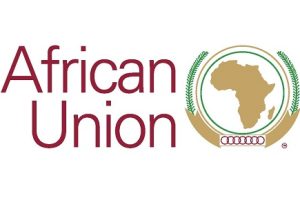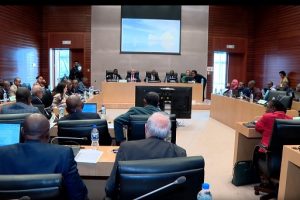
BY ADDISALEM MULAT
The ongoing Sudanese conflict has drawn global attention from various nations and international organizations. The conflict should worry every concerned person, but at the same time, people need to consider the multifaceted disadvantages of foreign intervention in the internal affairs of other countries. It is important to note that some countries have become the victims of foreign intervention, with devastating consequences for the affected nations and their citizens.
Foreign interventions have been used to advance meddling countries strategic interests. In many cases, the intervention has little or nothing to do with the welfare of the people of the country in question. They have often triggered unintended consequences. For example, in Iraq and Afghanistan, intervention has resulted in fragile states in various parts of the world. Both countries became destabilized plagued by violence, and failed to achieve the original aims of the intervention. The crisis unfolding in Sudan today should not be an avenue for anybody to repeat what happened in those countries before.
It is worth mentioning that foreign intervention undermines the sovereignty and territorial integrity of the affected countries. Countries like Syria, Libya, and Afghanistan are examples of nations facing a similar crisis. It is best to allow Sudan to resolve its conflict internally while providing support and resources to help achieve the objective. Although the international community has a role to play in promoting peace and security worldwide, they must safeguard the autonomy and sovereignty of the countries in question.
It has been argued that Sudan’s current conflict does not require external intervention as it could do more harm than good. Intervention could take the conflict from the frying pan into the fire and worsen the situation on the ground. Sudan’s conflict is a complicated and multi-faceted issue that requires a nuanced approach. Without a proper understanding of the root causes of the conflict and the different parties’ involved, external intervention could be counterproductive and lead to further complications.
By the same token, intervention could fuel the already existing mistrust and division among the different factions, leading to further unrest and instability. While the international community could provide humanitarian aid and support, active intervention in resolving the conflict could alienate some groups and create more problems. The appetite for intervention in Sudan might also come from misconceptions and misguided motives. Some actors could be seeking to advance their geopolitical interests, while others might be looking to pursue the export of their particular ideology, all to the detriment of the Sudanese people.
It is essential to exercise caution and proper judgment when considering external intervention in Sudan’s conflict. More harm than good could result if the intervention is done without an appropriate strategy, consensus-building, understanding of the stakeholders involved, and respect for Sudan’s sovereignty. Therefore, Sudan must be allowed to resolve its conflict internally, with external actors playing a limited supporting role. For several years, the ongoing conflict in Sudan has remained a matter of grave concern for the international community. Unfortunately, the situation has only deteriorated over time due to various factors, such as political instability, an economic crisis, and violations of human rights.
Despite the gravity of the situation, it is crucial to recognize that the solution to the problem might not be external interference or military intervention from a superpower but rather a nuanced, diplomatic approach that addresses the root causes of the conflict. When it comes to the conflict in Sudan, it is critical to take a peaceful and inclusive approach that reflects the needs and priorities of the Sudanese people. Any attempt at external interference or military intervention could further exacerbate the situation on the ground. It is crucial to prioritize solutions that put the power in the hands of the Sudanese people themselves.
Empowering them can be achieved through initiatives that promote self-determination and enable them to take control of their own future. Such solutions would require efforts to include all communities in peace building and reconciliation initiatives, address root causes of conflict, and promote political and economic stability. The long-term solution must make room for democratic participation and human rights protections while also addressing the immediate crisis at hand. This is a critical moment in Sudan’s history, and it is essential that the responsibility for determining its future remains firmly in the hands of the Sudanese people themselves.
The people of Sudan have displayed admirable resilience and determination to overcome the challenges they face. They need support, not interference, to find their own solutions to the problem. External actors should focus on empowering the people of Sudan to resolve the crisis by providing humanitarian aid, technical expertise, and diplomatic support. This would enable the Sudanese people to take charge of their own destiny, a critical step towards finding sustainable solutions. External actors should engage with the Sudanese people and work along with them in a transparent and collaborative way. By doing so, they can assist in the country’s recovery efforts and help promote long-term peace, stability, and progress.
Ultimately, the goal of external actors should be to create an enabling environment where Sudan can foster inclusive and sustainable growth, promote democratic practices, and build long-lasting institutions that can ensure its people’s well-being. Geopolitical maneuvering by external actors has been a major issue in many interventions sometimes resulting in detrimental consequences for the host country.
In the case of Sudan, powerful nations may see the crisis as an opportunity to establish strategic influence in the region possibly leading to a shift in regional dynamics through acquiring advantages over other powers. However, focusing on strategic objectives rather than the broader interests of humanity and the Sudanese people would not only thwart the prospects for bringing an end to the violence and humanitarian crises, but it also can worsen the stability of the region.
It is crucial to take a different approach to the Sudan crisis, where geopolitical interests are put aside, and the effort is concentrated on bringing an end to the conflict while promoting the broader interests of the Sudanese people. This requires engaging all parties involved and comprehensively addressing the root causes of the conflict including political and economic grievances, and human rights violations.
External actors’ engagement with the Sudan crisis should focus on supporting the people’s efforts to address their immediate and long-term needs, rather than advancing their interests. Adopting a people-centered approach like this can ensure that the host country can autonomously and democratically determine its future course. The Sudan crisis requires an innovative and people-centered approach, which seeks to address the root causes of the conflict rather than advancing the interests of external actors. Such an approach would have a chance to bring sustainable peace and stability to the Sudanese people, which is vital for the region at large. Economic exploitation is a significant concern in any intervention, particularly in situations where powerful countries have interests in the region.
External actors’ involvement in the Sudan crisis could potentially lead to a similar scenario, wherein powerful countries may use the situation as an opportunity to extract natural resources, secure advantageous trade agreements, and gain control over the region’s economy. By prioritizing the Sudanese people’s interests and promoting sustainable economic development that benefits the country as whole, external actors can help address the underlying problems that fuel the conflict and aid in achieving long-term peace and stability in the country. Interventions in crisis situations often receive extensive attention from the international community as a critical means to alleviate humanitarian crises, reduce suffering, and assist those in need.
While their intentions to provide aid to communities in distress are noble and commendable, interventions can also become a double-edged sword if they are not carefully planned, implemented, and monitored. One of the most concerning issues with interventions is the possibility of economic exploitation. In crisis situations where external countries have interests, interventions can provide them with the leverage to extract natural resources, secure access to new markets and preferential trade agreements, and gain control over the region’s economy.
Unfortunately, this practice can leave the affected people worse off than before, as it perpetuates the crisis’s underlying problems and exacerbates the conditions of economic distress. External actors must prioritize the affected country’s people’s interests above their strategic interests focusing on solving the underlying problems and promoting long-term solutions. Intervening countries should adopt a comprehensive approach to address the root causes of the crisis, invest in human development and local economic growth, and ensure that the affected people have a meaningful say in the intervention process.
Interventions must be carefully thought out and carried out with the best interests of affected communities in mind, prioritizing their long-term economic and social development and promoting sustainable peace and stability in the region. By taking these considerations into account, external actors can play a constructive role in the crisis, assist in alleviating human suffering, and help promote long-term development in Sudan. While external assistance to Sudan may bring some help to people grappling with economic instability and civil unrest, it may not guarantee a long-lasting solution.
It is here that Sudan needs to be given an opportunity to find its own way out of the crisis. External involvement has frequently created a power vacuum leading to conflict, intensifying political rivalries, and further destabilizing the region. For instance, the conflict in Libya has worsened following external intervention, with multiple factions fighting for control, leading to increased violence and instability.
Likewise, the conflict in Syria is another case where an external intervention has intensified the conflict and made the situation more complex. Given the complex situation in Sudan, it is essential to protect its sovereignty and support its effort to find its way out of the crisis. It is only Sudanese that can determine their country’s future, and it is essential to offer support to the Sudanese people through initiatives aimed at addressing the underlying problems, such as economic challenges, social inequality, and political instability.
THE ETHIOPIAN HERALD WEDNESDAY 3 MAY 2023





